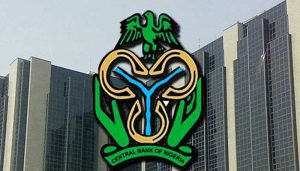
The exchange rate between the naira and dollar closed at N1,534/$1 on the official NAFEM market on Monday, February 12th, 2024.
This is the weakest ever the naira has fallen against the dollar at closing on the official market.
The intra-day high and low also hit N1,550 and N1,000 against the dollar as Nigeria continues to slide on the back of central bank reforms towards a free market exchange rate.
The forex turnover during the day was $89 million, the lowest so far in February. On the parallel market where the exchange rate is trading unofficially, BDC operators quoted between N1,490 to N1,550.
The Nigerian naira plummeted to an all-time low of N1,534.39 per dollar on Monday, accompanied by a staggering 64.69% drop in forex turnover to $89.61 million.
This significant decline, amounting to 4.19% or N64.42 weaker than Friday’s closing rate of N1,469.97, underscores growing concerns regarding the currency’s trajectory.
The unprecedented depreciation observed marks the lowest point in the historical performance of the naira, highlighting the severity of the prevailing economic challenges.
Despite recent efforts by the Central Bank of Nigeria (CBN) to bolster the foreign exchange market through interventions, the currency’s downward trend persists, prompting concerns about its potential impact on the broader economy.
This development is likely to aggravate existing inflationary pressures and further strain household budgets, particularly for those reliant on imported goods.
The implications for businesses, both large and small, are also significant, with potential increases in production costs and challenges in maintaining profitability.
The domestic currency depreciated by 64.42% to close at N1,534.39 to a dollar at the close of business, data from the NAFEM where forex is officially traded, showed.
This represents an N64.42 loss or a 4.19% decline in the local currency compared to the N1,469.97 it closed on Friday.
The intraday high recorded was N1550/$1, while the intraday low was N1,000/$1, representing a wide spread of N550/$1.
According to data obtained from the official NAFEM window, forex turnover at the close of trading was $89.61 million, representing a 64.69% decrease compared to the previous day.
Similarly, the naira depreciated marginally at the parallel forex market where forex is sold unofficially, the exchange rate quoted at N1,490/$1, a decrease of 0.34% against N1,485 it closed the previous day,
The Great British Pound (GBP) appreciated marginally by 0.27% to close at £1/N1,885 as against £1/N1,890 the previous day while Naira also gained against the Euro by 0.63% to close at N1575/EUR1 against NI585 / EUR1 reported the previous day.
In the cryptocurrency market where forex is sold using stablecoins, the Naira also crossed N1,506.65/$1.
The former President and Chairman Governing council of, the Chartered Institute of Stockbrokers (CIS) and the Managing Director, of Arthur Steven Asset Management Limited, Olatunde Amolegbe said for the exchange rate to be stable, market and participants’ confidence is key.
“Confidence is what makes foreigners want to come to invest in your country and makes locals want to keep their investments here.
“In the absence of these dynamics, demand will naturally outstrip supply and you see the sort of instability we are experiencing now.
“I think the current efforts of CBN will be positive for market confidence, but the desired impact might manifest in the medium term rather than in the short run.
“I also think the efforts at using monetary policy tools to reduce system liquidity could ultimately reduce currency speculation but again it’s not a silver bullet.
“Deliberate efforts need to intensify at effecting structural changes that will encourage import substitution such as improved security, better infrastructure increased foreign direct investments, and encouraging local production,” he said.






